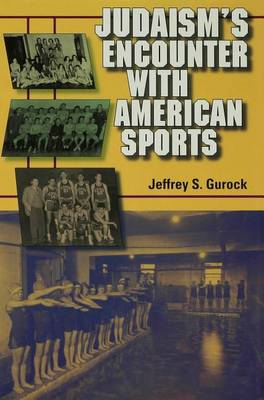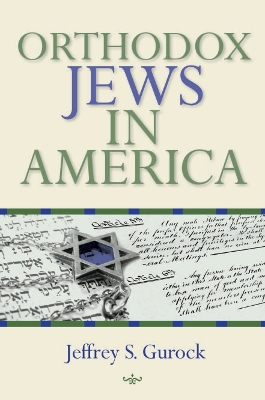The Modern Jewish Experience
2 total works
Judaism's Encounter with American Sports examines how sports entered the lives of American Jewish men and women and how the secular values of sports threatened religious identification and observance. What do Jews do when a society-in this case, a team-"chooses them in," but demands commitments that clash with ancestral ties and practices?
Jeffrey S. Gurock uses the experience of sports to illuminate an important mode of modern Jewish religious conflict and accommodation to America. He considers the defensive strategies American Jewish leaders have employed in response to sports' challenges to identity, such as using temple and synagogue centers, complete with gymnasiums and swimming pools, to attract the athletically inclined to Jewish life. Within the suburban frontiers of post-World War II America, sports-minded modern Orthodox, Conservative, and Reform rabbis competed against one another for the allegiances of Jewish athletes and all other Americanized Jews. In the present day, tensions among Jewish movements are still played out in the sports arena.
Today, in a mostly accepting American society, it is easy for sports-minded Jews to assimilate completely, losing all regard for Jewish ties. At the same time, a very tolerant America has enabled Jews to succeed in the sports world, while keeping faith with Jewish traditions. Gurock foregrounds his engaging book against his own experiences as a basketball player, coach, and marathon runner. By using the metaphor of sports, Judaism's Encounter with American Sports underscores the basic religious dilemmas of our day.
Jeffrey S. Gurock recounts the history of Orthodox Jews in America, from the time of the early arrivals in the 17th century to the present, and examines how Orthodox Jewish men and women coped with the personal, familial, and communal challenges of religious freedom, economic opportunity, and social integration. His absorbing narrative portrays the varied lifestyles of Orthodox Jews and exposes the historical tensions that have pitted the pious against the majority of their co-religionists who have disregarded Orthodox teachings and practice. Exploring Orthodox reactions to alternative Jewish religious movements that have flourished in a pluralistic America, Gurock illuminates contemporary controversies about the compatibility of modern culture with a truly pious life, providing a nuanced view of the most intriguing present-day intra-Orthodox struggle—the relationship of feminism to traditional faith. The book exposes the hypocrisy of Jews who, while outwardly devout in their careful observance of religious ritual, have behaved as moral miscreants. Anyone seeking to understand the American Jewish experience will find Orthodox Jews in America to be essential reading.

